Tableau harnesses healing power of design in mental health space for Copenhagen
Post Service, a space dedicated to mental health, grief and mindfulness, opens in Copenhagen with an interior design by Tableau
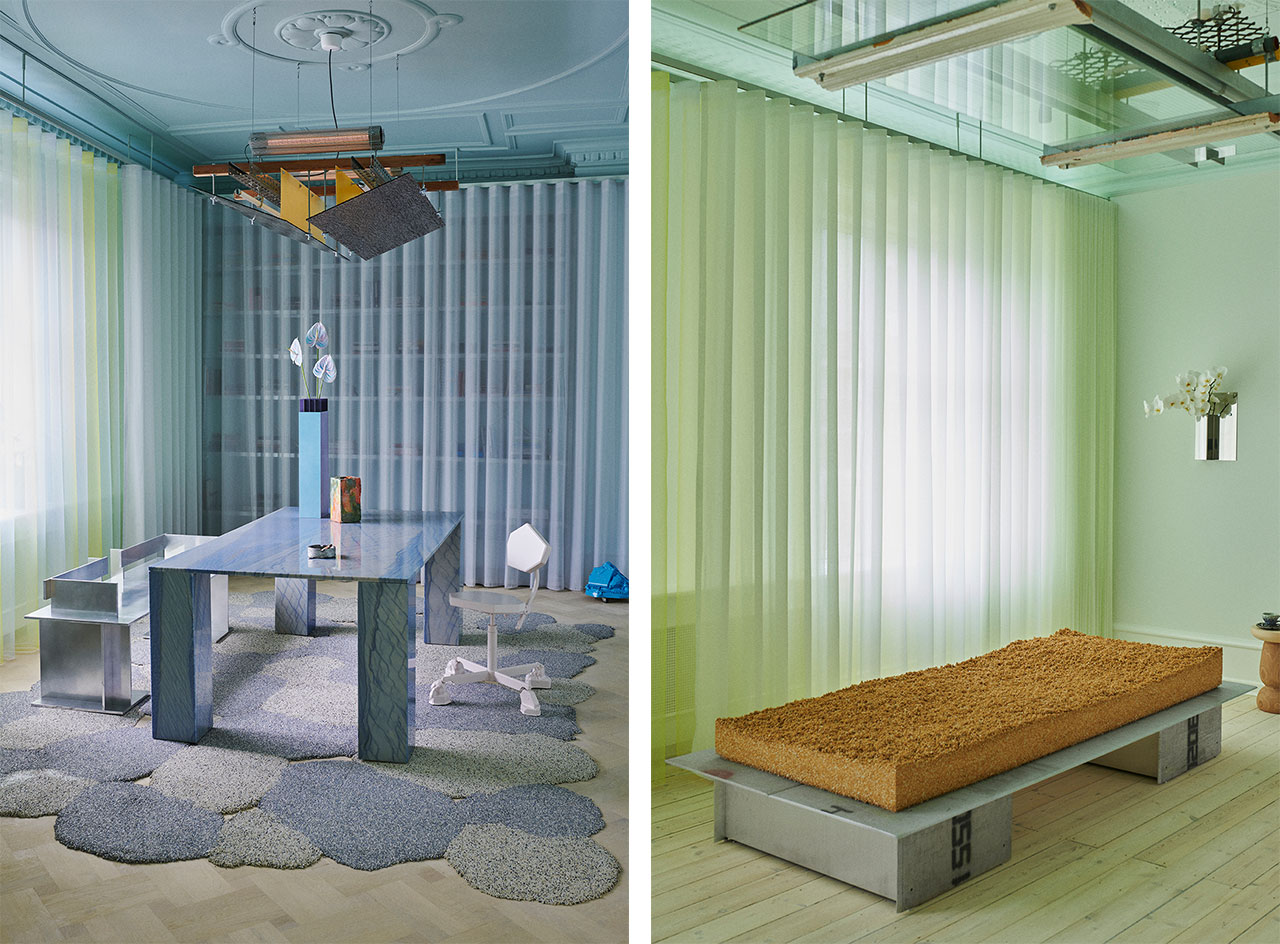
Post Service is a new ‘facilitation studio addressing death and grief’ that just opened in Copenhagen, led by mental health practitioner Xanthippi de Vito and designed by multidisciplinary studio Tableau.
The project started in 2015, when de Vito began wondering about her experience as a practitioner, and about how mental health could be enriched through design. ‘Within health and wellness, there are certainly communities engaging with deep and meaningful connections but I never found a communal experience that really resonated with me, so I’ve been working on piecing together what that community and experience feel like,’ says de Vito. ‘It was intuitive that art and design will play major roles in the experience.’
Post Service: a Copenhagen mental health space designed by Tableau
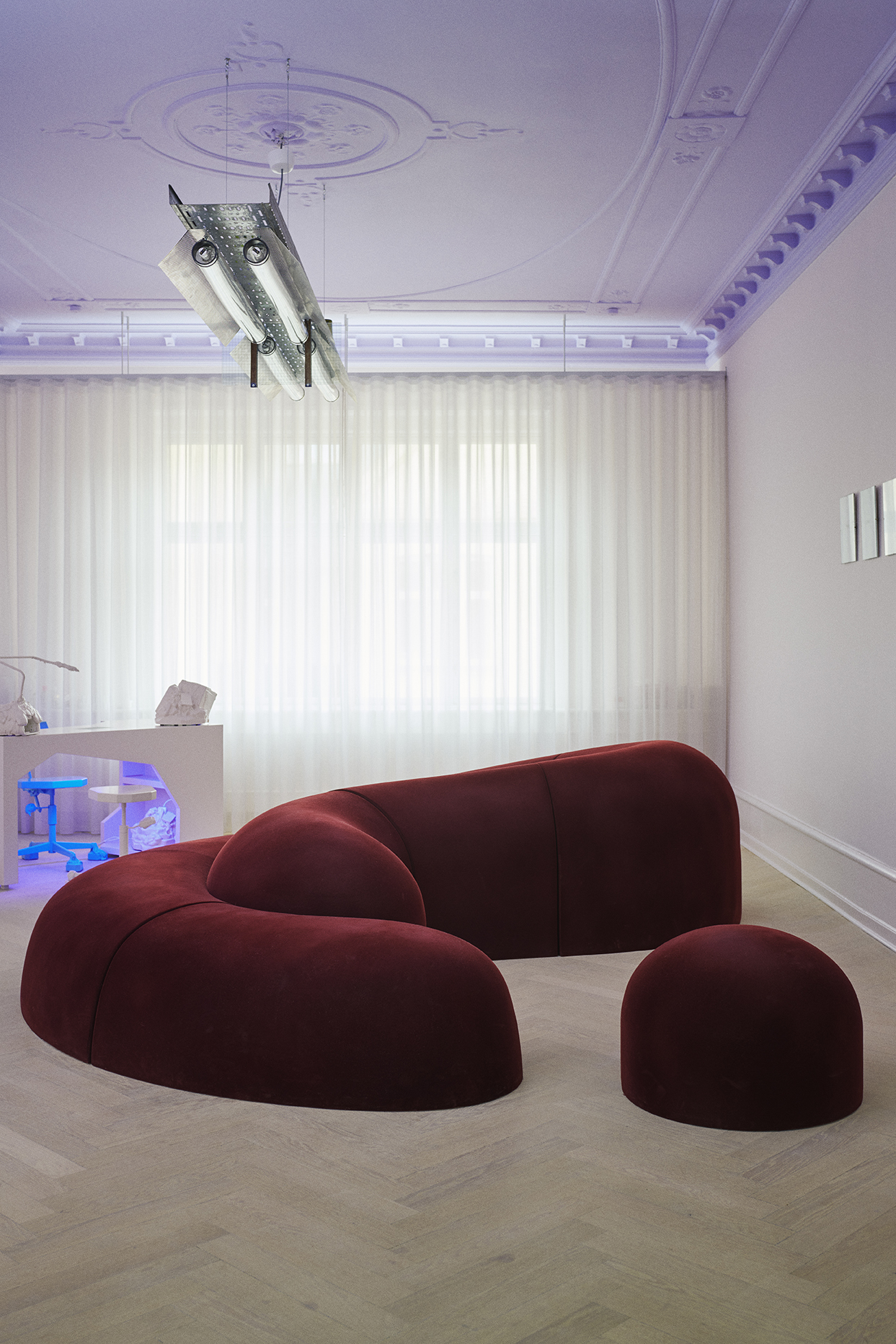
From left: Nail Desk by Jacob Egeberg lamp by Arnaud Eubelen and sofa by Kristine Mandsberg X Tableau
The clinic operates as a combination of health coaching and mindfulness practices, run by de Vito: private talk sessions are integrated with the use of an infrared sauna, movement room, or personal time in the all-inclusive space. Post Service will play host to gatherings and events that foster a sense of community (with the golden rule of ‘no discussing work’), such as movie nights, dinners and conversations.
De Vito had discovered the work of Tableau (the Copenhagen-based studio founded by Julius Værnes Iversen and evolved from a flower shop into a fully fledged design operation) via social media and, in her words, she ‘low-key creeped on Julius’ until she finally ran into him and approached the studio for the project.
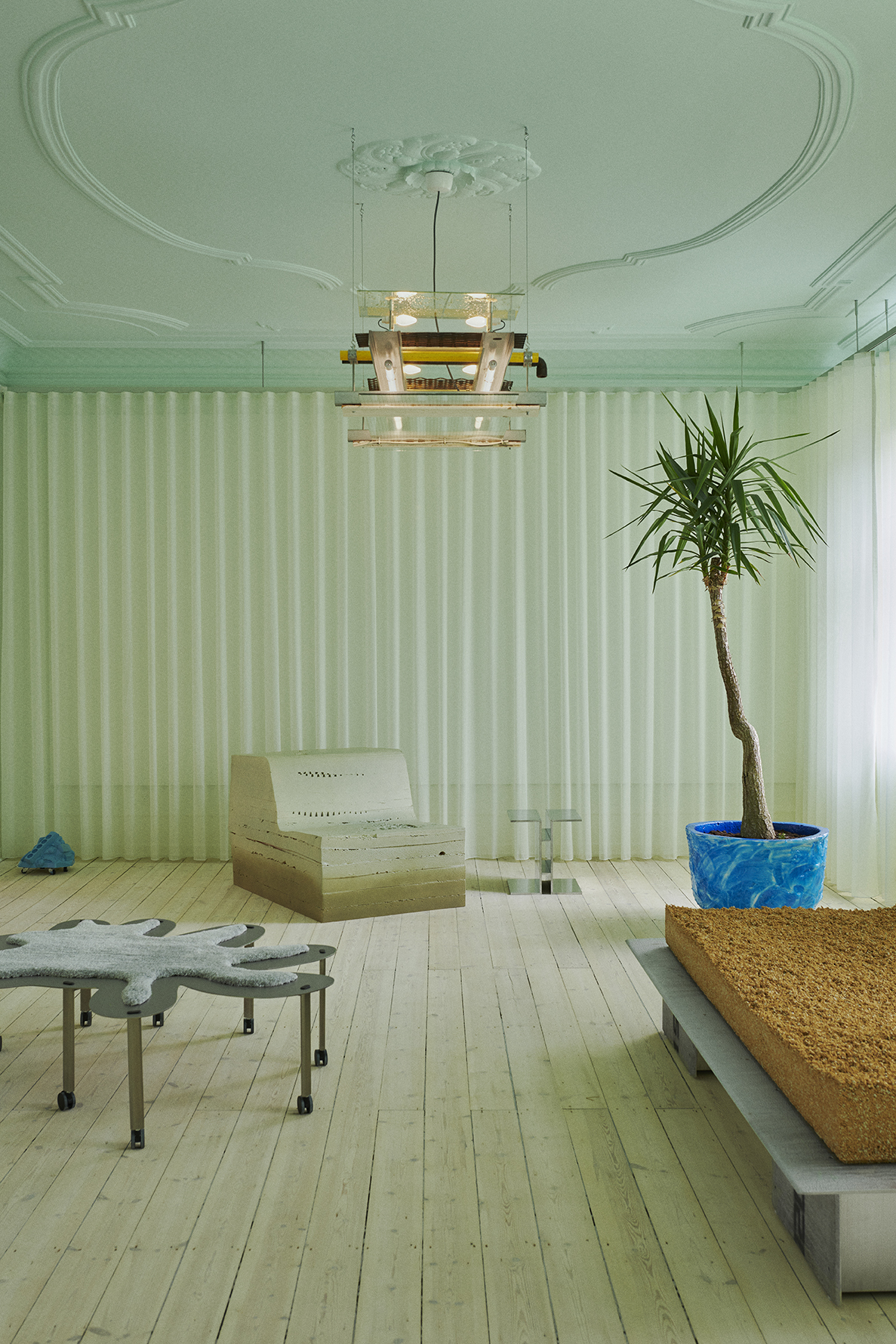
From left: ‘Blue Waste Island’ charger station by Jacob Egeberg, ‘Comfy Table’ by Tableau, ‘Creamy Foam Chair’ by Carsten in der Eelst, ‘When after the fre comes the rain’ suspension lamp by Arnaud Eubelen, ‘Small split stool’ by Thomas Gayet, ‘Alu Skin” daybed by Carsten in der Eelst and ‘Limus’ pot by Laurids Gallée X Tableau
‘For me, it is a very honourable task to get a spatial design project where the main focus is to design a space where people will mourn and talk about their inner difficult thoughts and feelings,’ says Iversen. The brief he received from de Vito included ‘no earth tones and no fluffy white couch’, with the aim of creating a more inclusive and representative space.
‘I made clear that the entire experience, from walking in and taking off your shoes, passing through the doors of the space, to ritualising the exit, needs to be mindfully designed and together we set out to curate a space that flips the rhetoric and welcomes a playful sense of curiosity,’ explains de Vito.
The result is a space where art, furniture and lighting are, in Iversen’s words ‘all a part of the practice of healing’. Every aspect of the interiors has come together into a mood that is both serious and playful, strict and calm, with the function of healing at the core. Each room, Iversen explains, is painted with very subtle tones and cold shades on walls and woodwork. The ceilings match the walls, but are in much darker tones. Iversen says: ‘In this way, you feel sort of grounded, it's like a large blanket is coming down on you.’
Receive our daily digest of inspiration, escapism and design stories from around the world direct to your inbox.
A year-long design collaboration
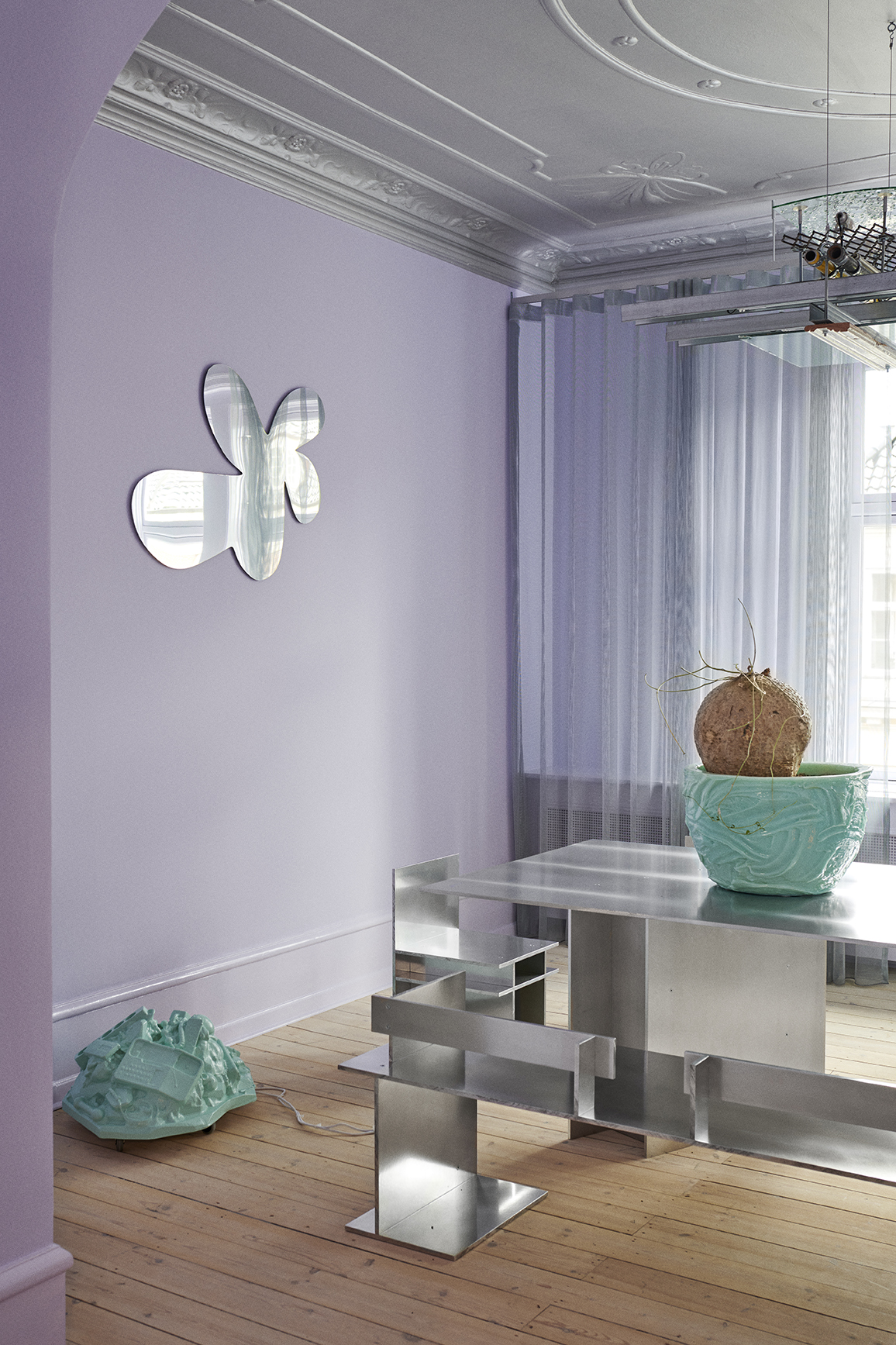
From left: ‘Flower Mirror’ by Tableau, ‘Mint Wasteland Island’ charger station by Jacob Egeberg, ‘Why don’t I see you at the clubs anymore?’ Aluminium furniture set by Thomas Gayet, ‘Limus’ mint pot by Laurids Gallée X Tableau
Led by Iversen, the clinic’s interior is a truly collaborative effort. Working closely with de Vito on the concept, Tableau gathered a series of local designers, artists and makers to create bespoke objects and furniture.
The space features is a therapeutic day bed by Carsten in der Elst facing a large palm tree (plants, Tableau’s original area of expertise, play a small but significant role throughout the space), an aluminium dining set by Thomas Gayet, a styrofoam sofa by Kristine Mandsberg, and lighting by Arnaud Eubelen made of 95 per cent recycled materials collected from waste centres. Artist Anna Clarisse Holck Wærhens was commissioned to create robes and towels that are both heavy and soft, giving the user a sense of being hugged.
‘All objects are made to surprise you in some way,’ says Iversen, pointing to the succession of extremely hard and soft surfaces, textile-covered walls. To convey a sense of comfort, lighting can be set to very cold or warm, depending on its function. ‘I really believe that design can take a big part in helping a person become better: already by intriguing a person when they walk in the door you have made sure that the person is as receptive as possible towards talking about difficult subjects and feelings.’
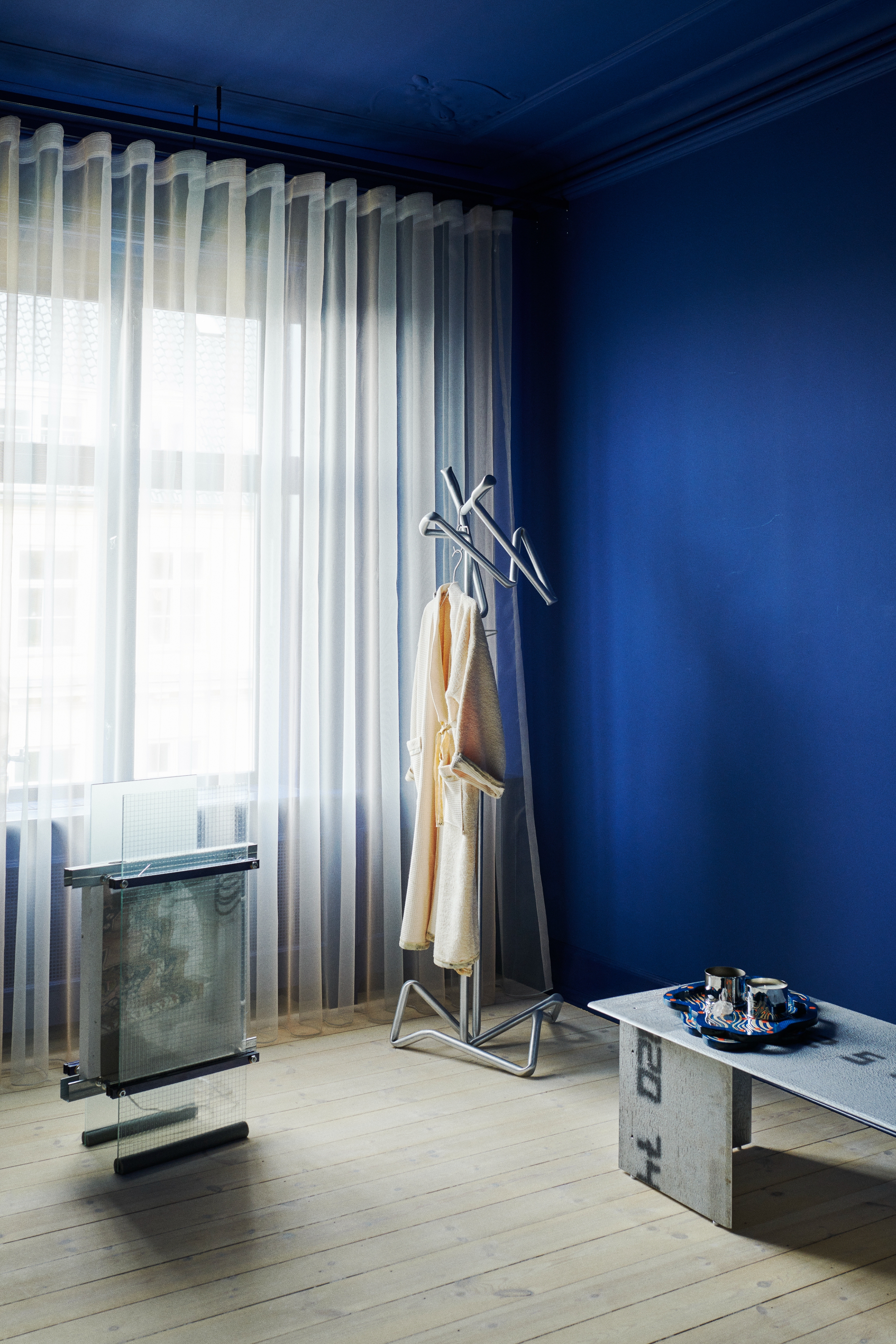
In the sauna room, robe in organic terry/waffel cotton, multicolored thread and hand dyed cotton ribbons by Anna Clarisse Holck Wæhrens hanging on a coat rack by Among Other Things. The bench is by Carsten in der Elst, while the floor lamp was designed by Arnaud Eubelen, ‘Tray M1’ by Laurids Gallée
De Vito describes the space as ‘a sanctuary: a safe haven with a few sharp metal edges’, she jokes. ‘I am stunned by the vision and execution of the team at Tableau. As a mental health practitioner, I am so grateful for the opportunity to welcome participants into the immersive experience of Post Service and share space together as they engage with vulnerability and receptivity.’
Most importantly, Post Service is a safe space, somewhere to encourage clients to be playful and truthful with their feelings, to relax and recalibrate emotionally, intellectually and physically. And all this, de Vito stresses, is largely done through design. ‘There is a very real emotional and intellectual connection to our physical environments,’ she concludes. ‘So it makes practical and logical sense to incorporate design into healing spaces, in particular mental health spaces. We deserve creatively rooted environments to experience ourselves within, and it’s time for design to have a permanent seat at the table of mental health.’
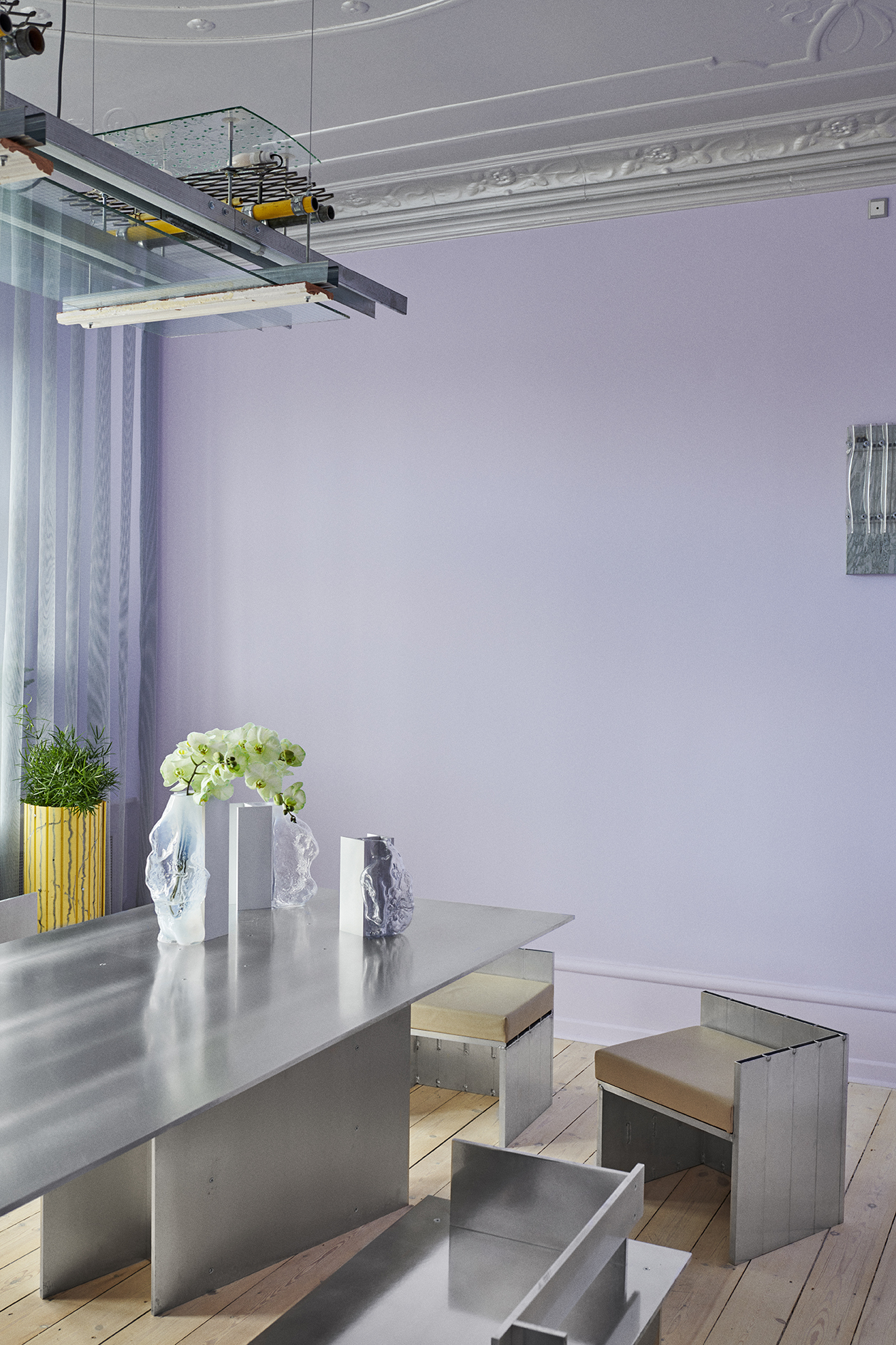
From left: ‘When after the fire comes the rain’ suspension lamp by Arnaud Eubelen, ‘Yellow Cylinder Container’ by Rasmus Højfeldt, ‘Altus’ vases by Blaes X Tableau, ‘Why don’t I see you at the clubs anymore?’ aluminium furniture set by Thomas Gayet, ‘The hglf chair’ aluminium box chairs by Mikel Peruch for hglf
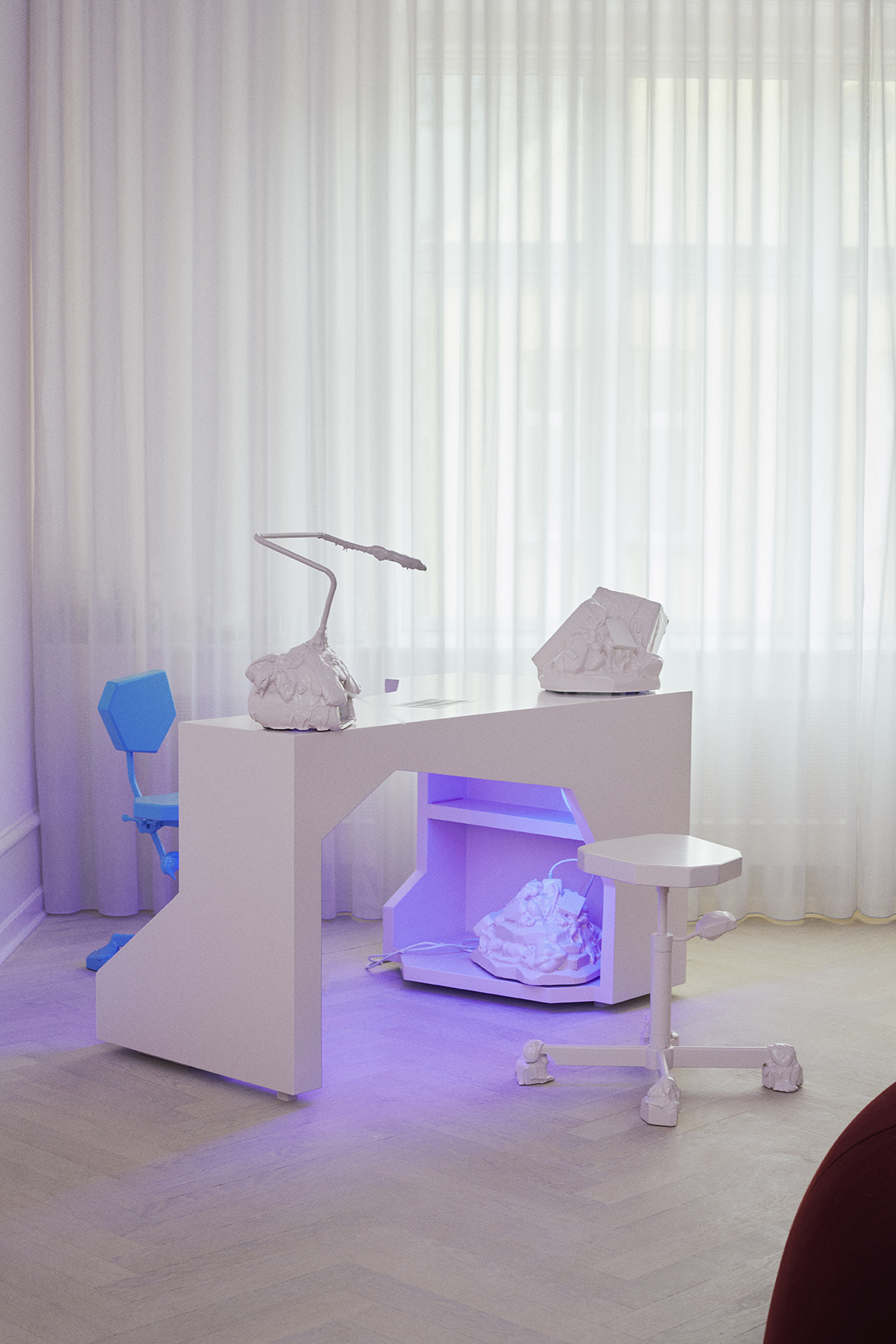
Nail salon desk by Jacob Egeberg
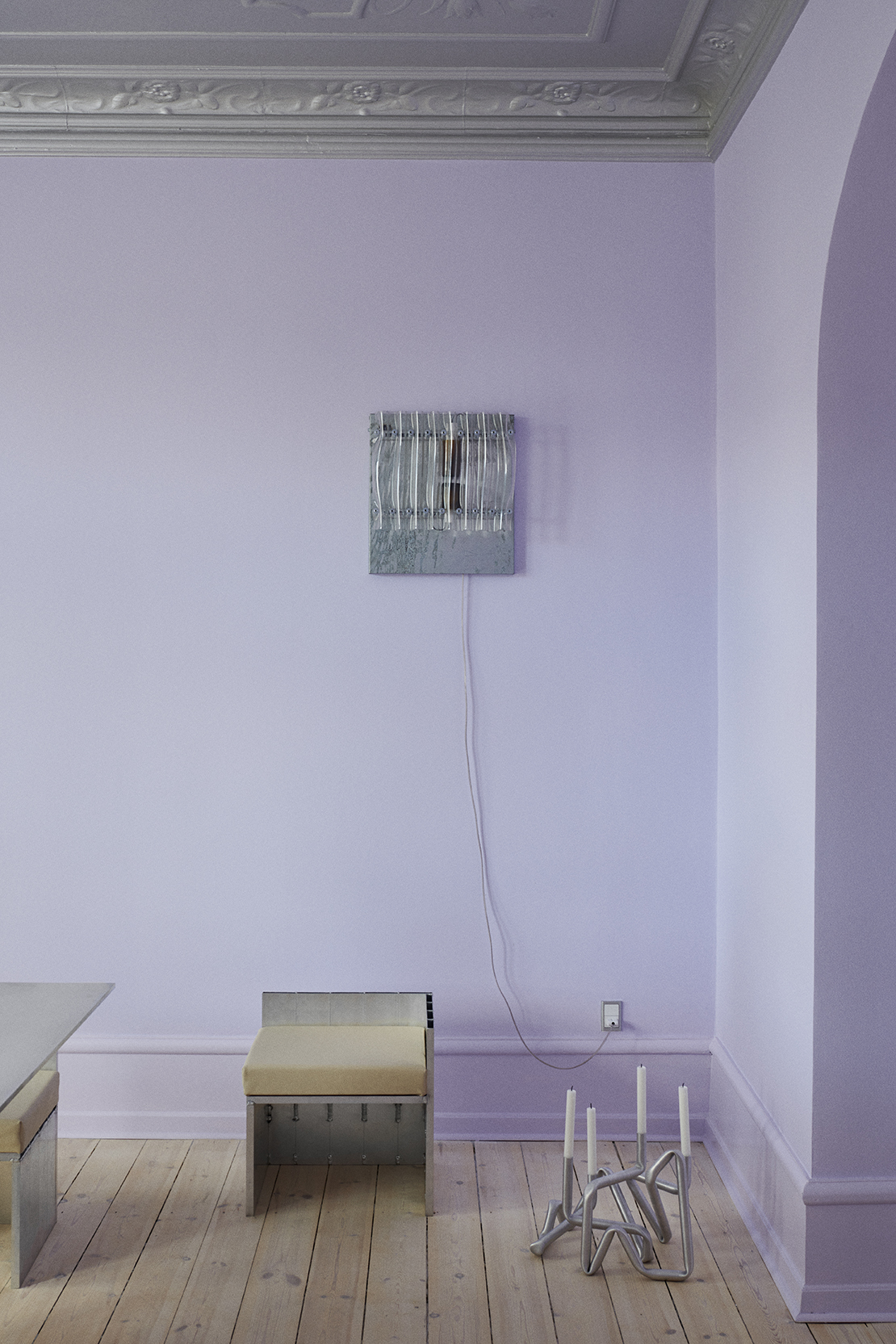
‘The hglf chair’ by Mikel Peruch for hglf, ‘Crystal Sunset’ wall lamp by Arnaud Eubelen, ‘Bucati’ and ‘Bucatini’ candleholders by (among other things)
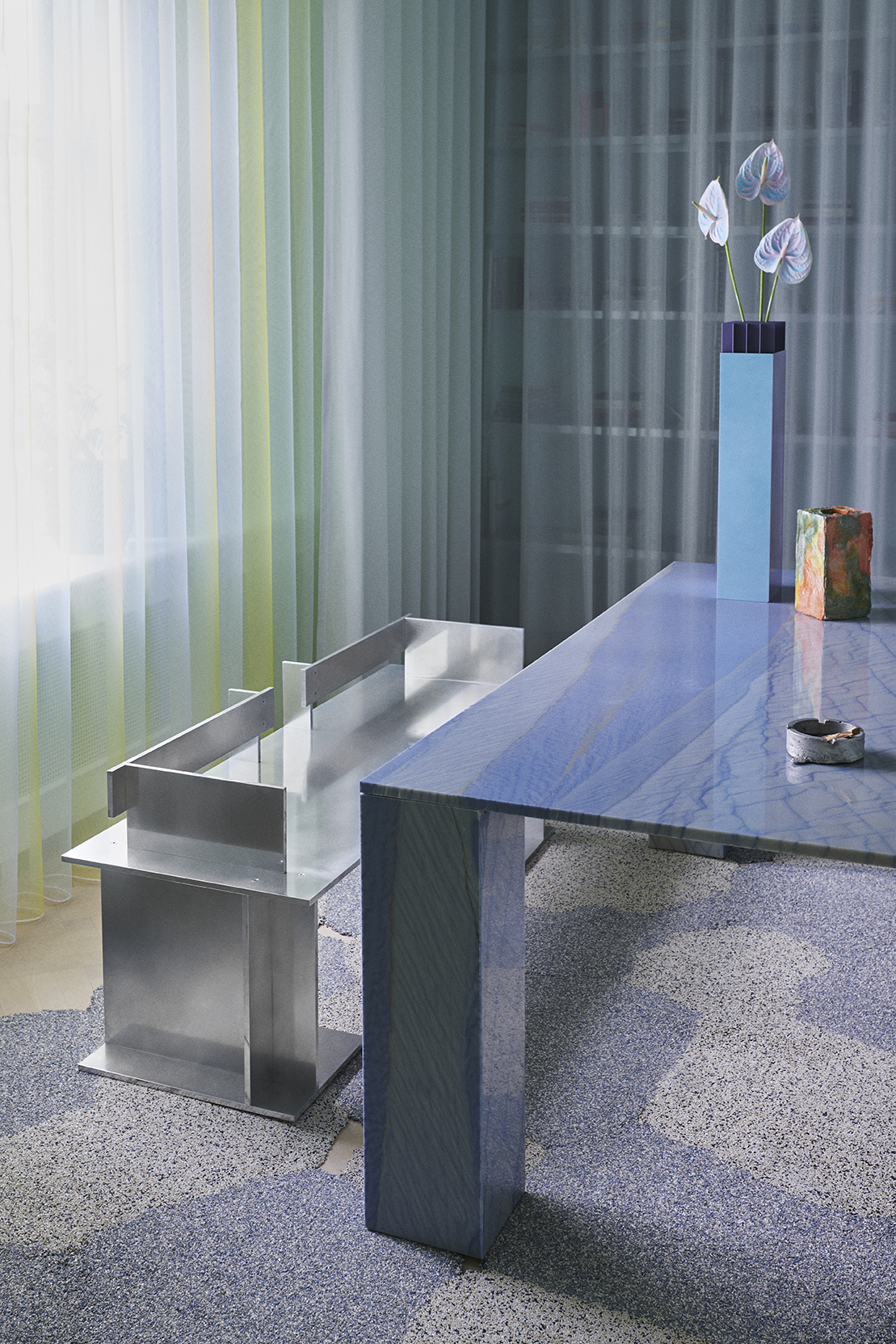
‘Not so public bench’ by Thomas Gayet, ‘Healing Azul’ blue quartz table by Tableau, ‘Aurora’ vase by Tableau, ‘Superbloom #19’ vase by Pettersen & Hein, ‘Yuppie4Life’ ashtray by Kevin Josias
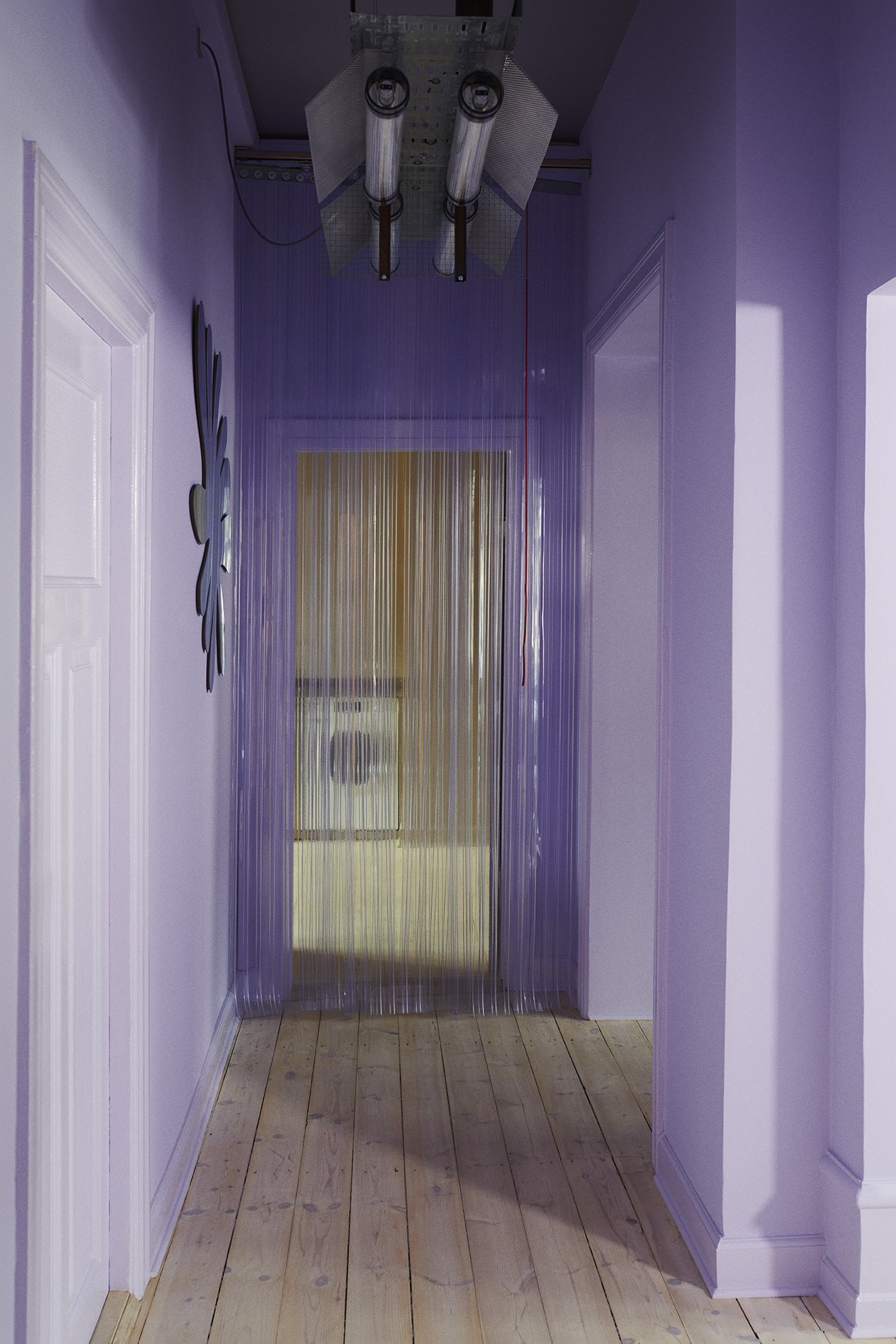
‘Flower Mirror’ by Tableau, ‘Metropolitan Walk’ suspension lamp by Arnaud Eubelen
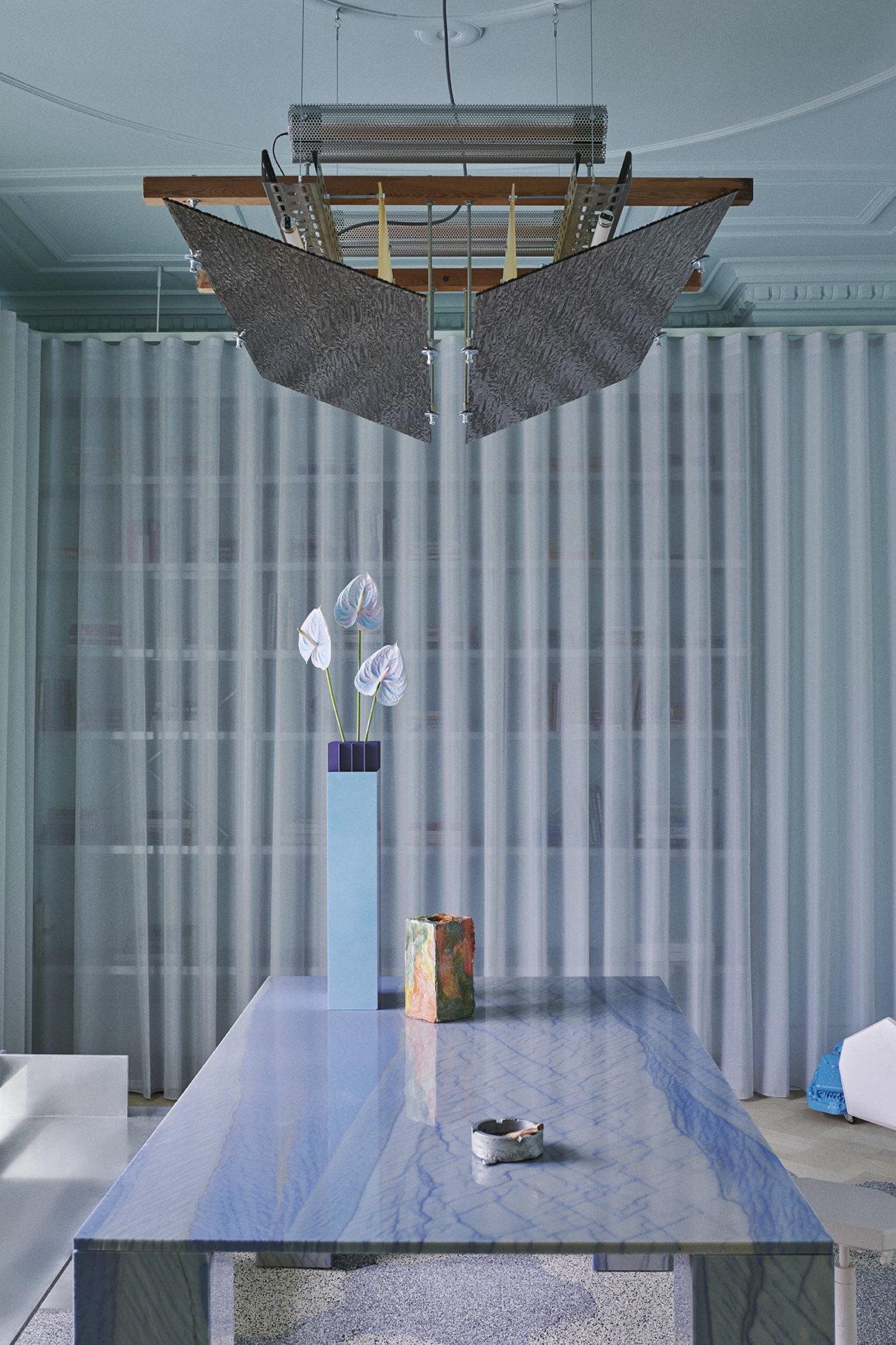
‘Healing Azul’ blue quartz table by Tableau, ‘Aurora’ vase by Tableau, ‘Superbloom #19’ vase by Pettersen & Hein, “Yuppie4Life’ ashtray by Kevin Josias, ‘Groom Service’ suspension lamp by Arnaud Eubelen
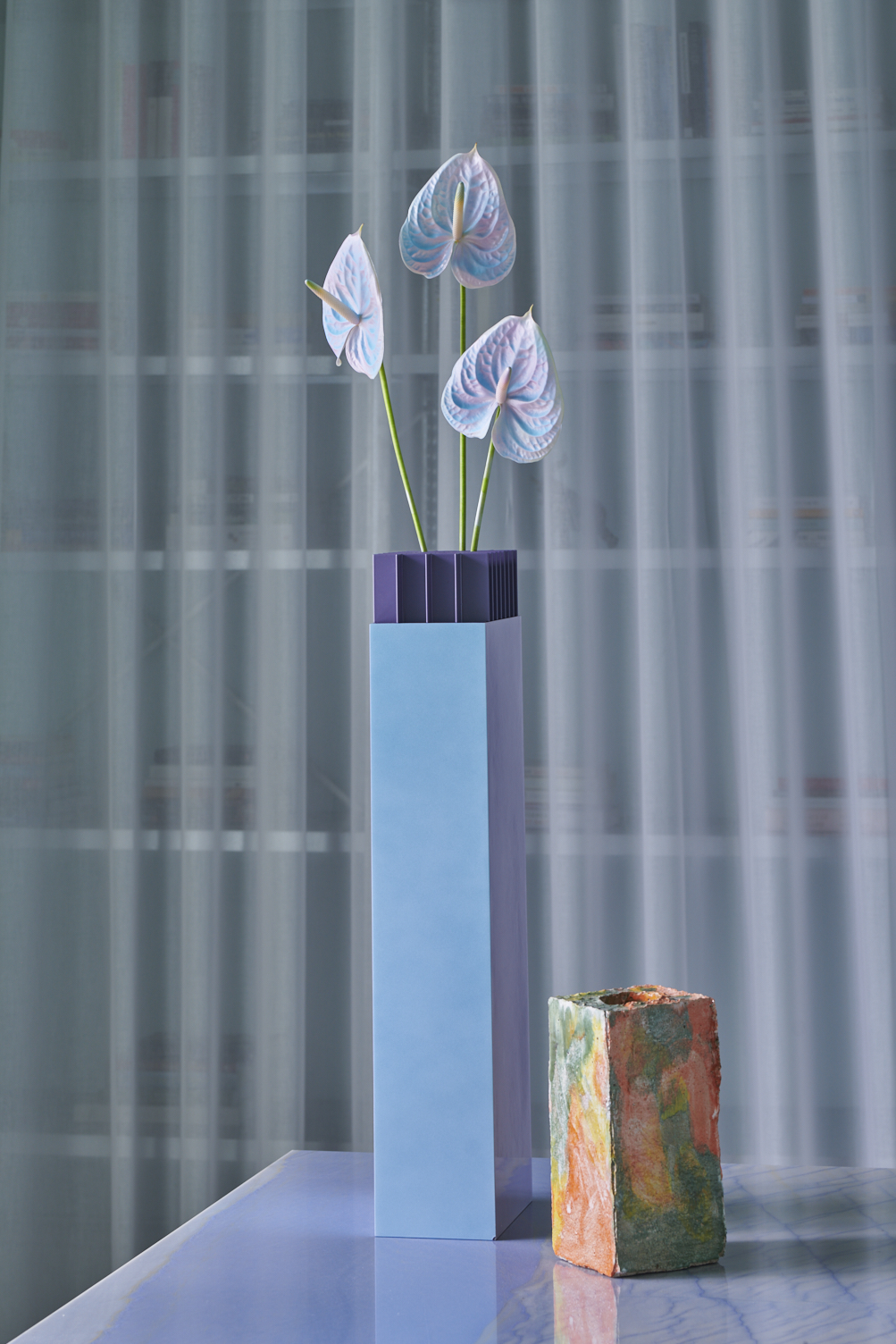
‘Aurora’ vase by Tableau, ‘Superbloom #19’ vase by Pettersen & Hein
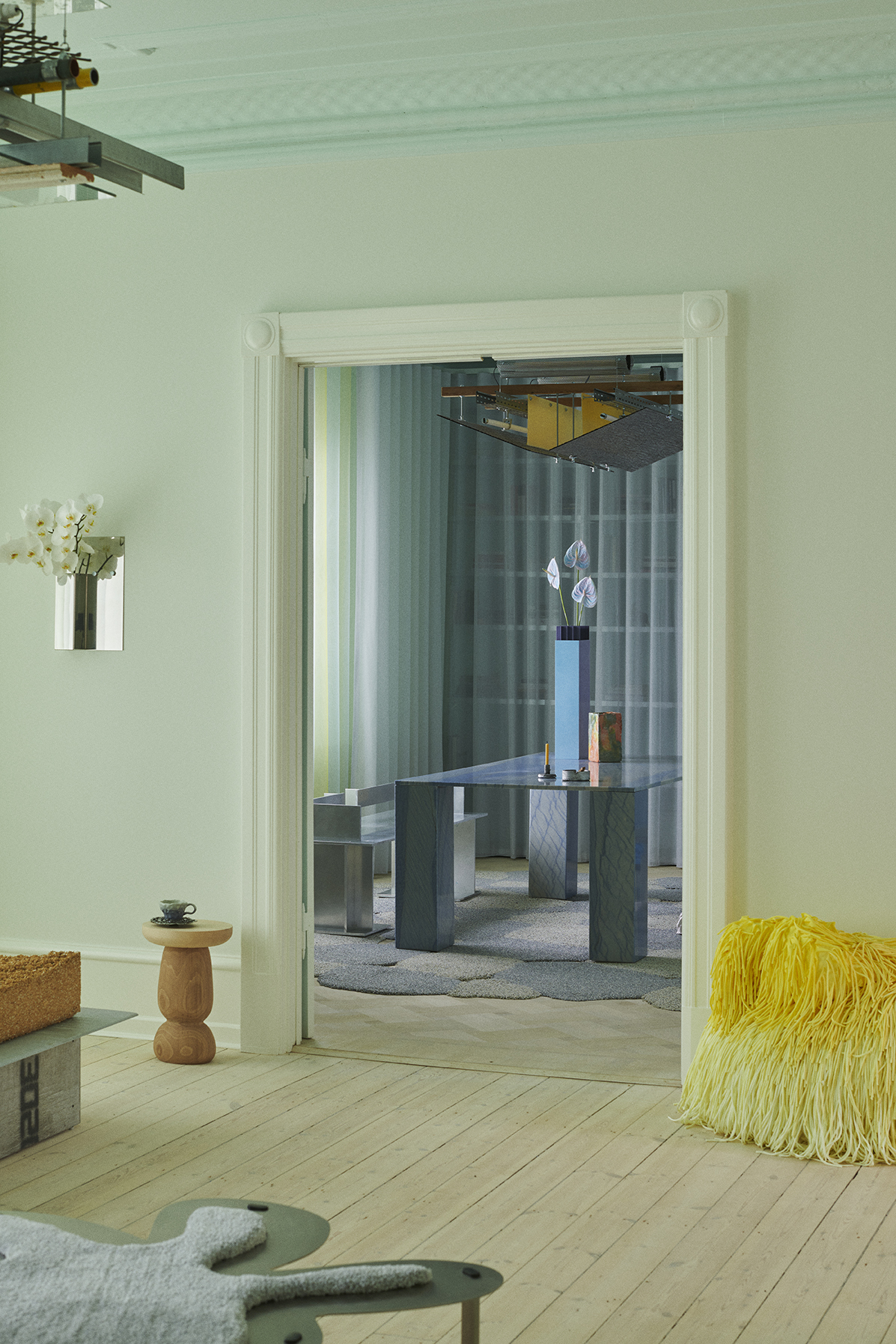
From left: ‘Wall Vase’ by Tableau, ‘On Balance #94’ wooden stool by Anne Brandhøj, ‘Comfy Table’ by Tableau, ‘rubber rug two blends’ by Carsten in der Eelst, ‘Fringe Bomb’ by Kristine Mandsbjerg
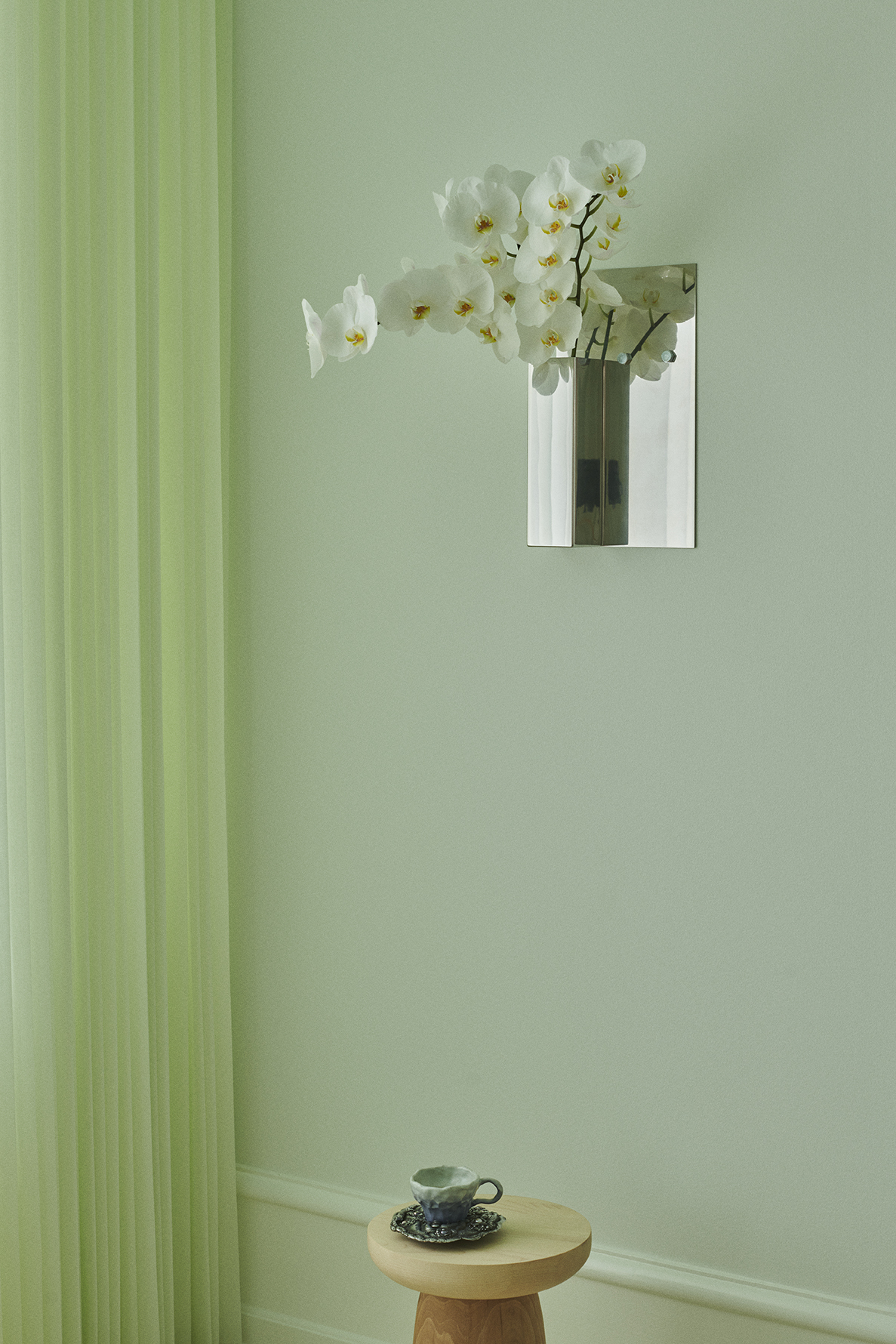
From left: Teacup by Esben Kaldahl, Wall vase by Tableau, ‘On Balance #94’ wooden stool by Anne Brandhøj
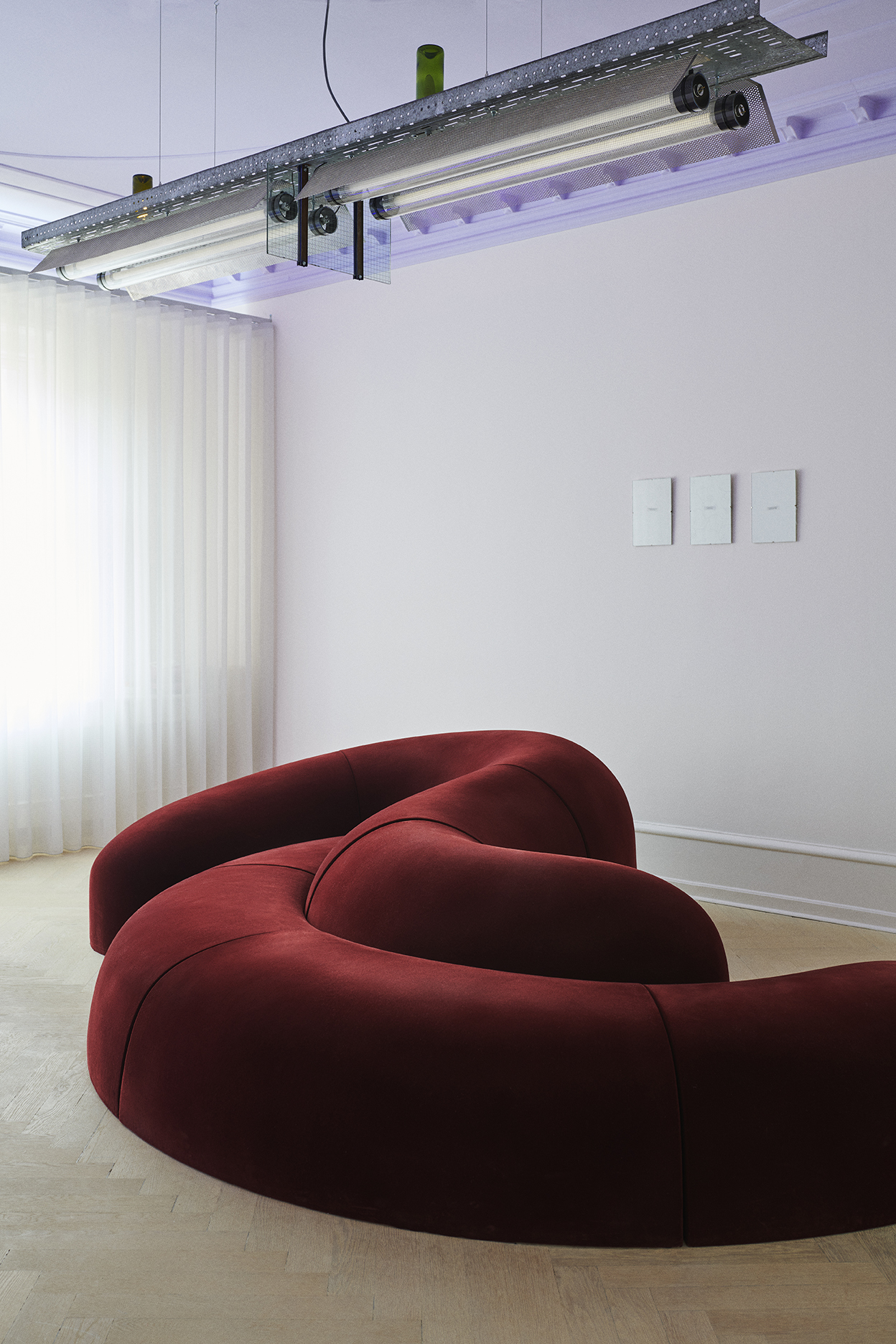
Flocshape sofa by Kristine Mandsbjerg X Tableau
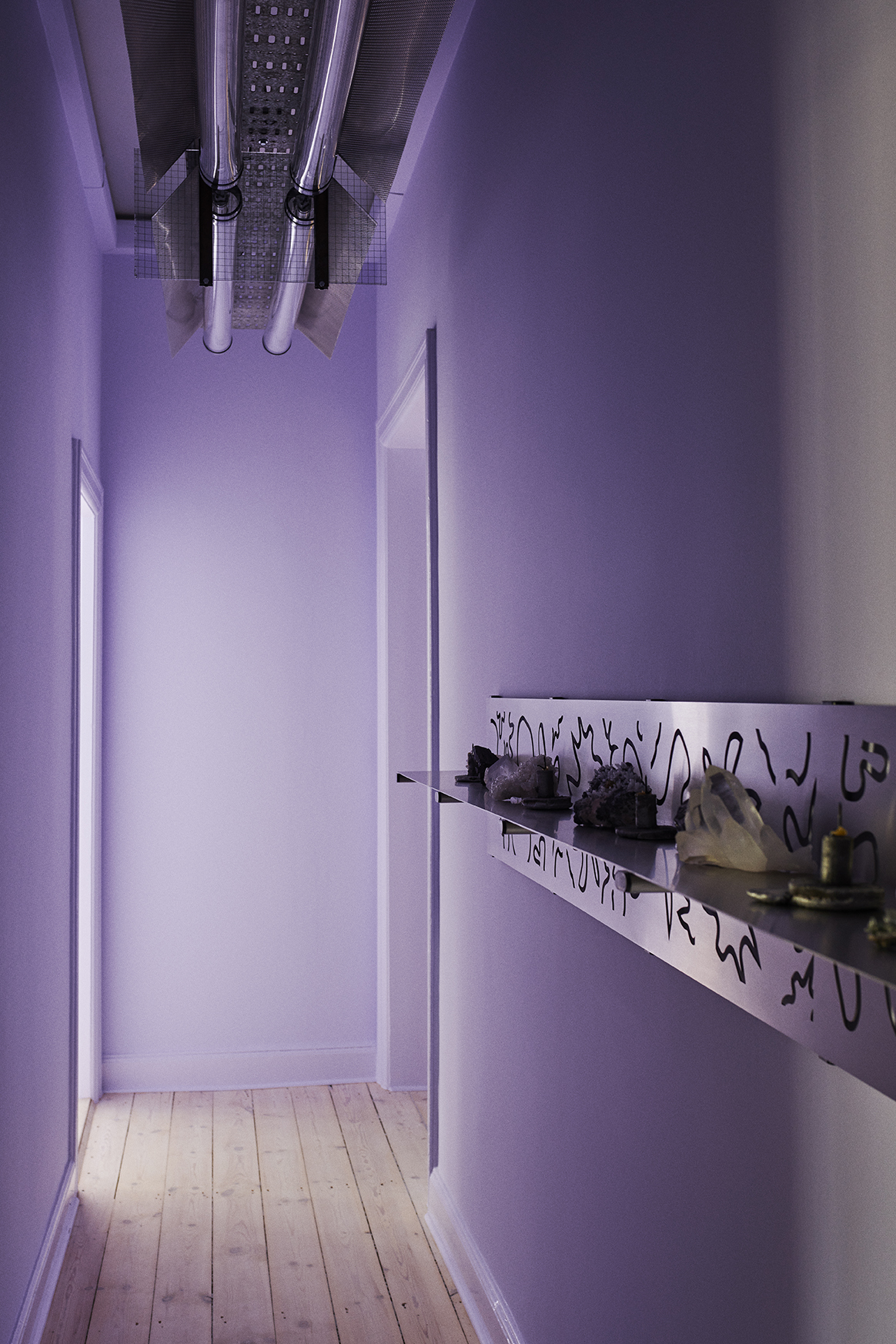
‘Metropolitan Walk’ suspension lamp by Arnaud Eubelen, ‘Crystal Shelf’ by Tableau
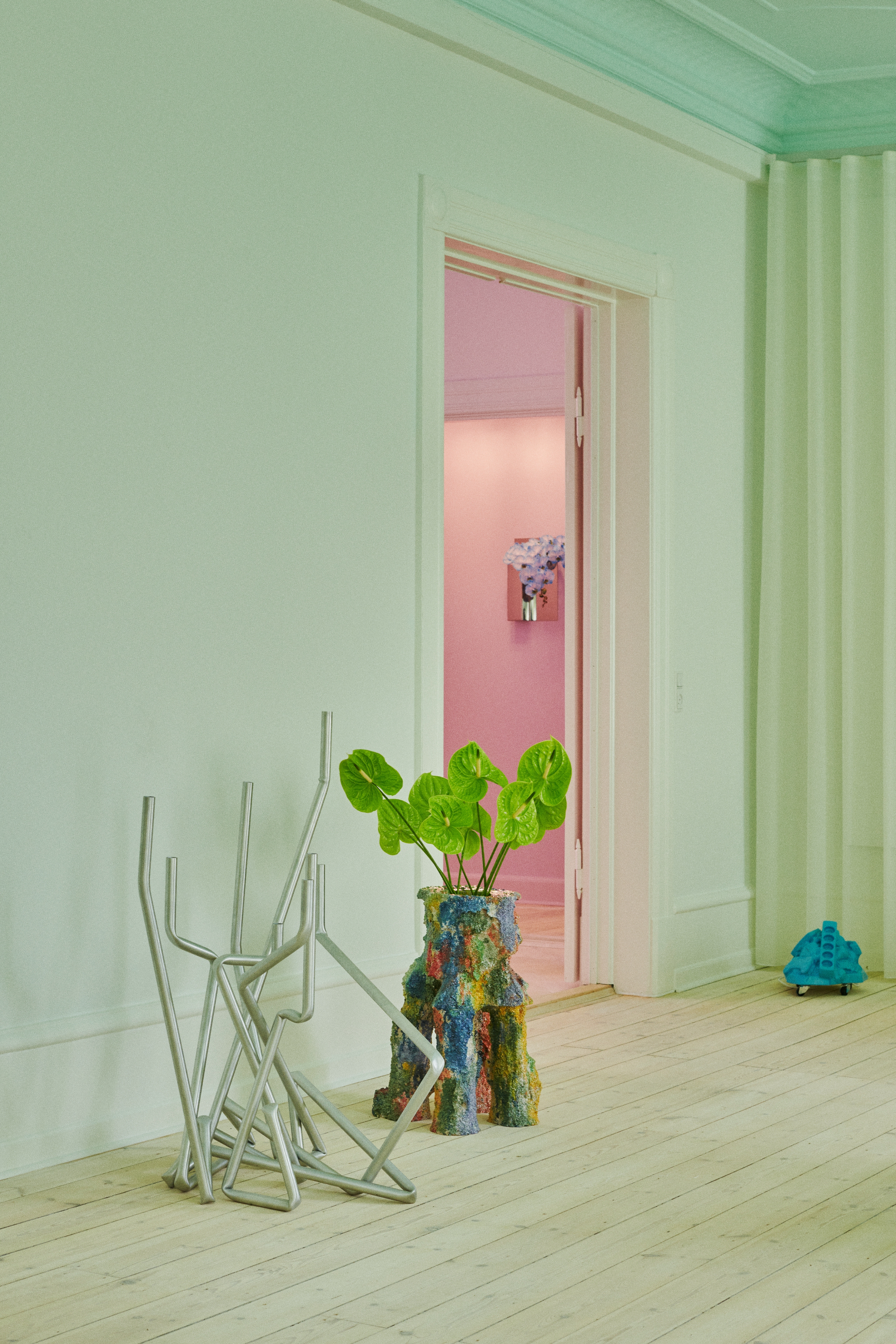
‘Blue Waste Island’ charger station (on the floor) by Jacob Egeberg, ‘Bucati & Bucatini’ Candle holder by Among Other Things, ‘4 legged friend’ by Pettersen & Hein
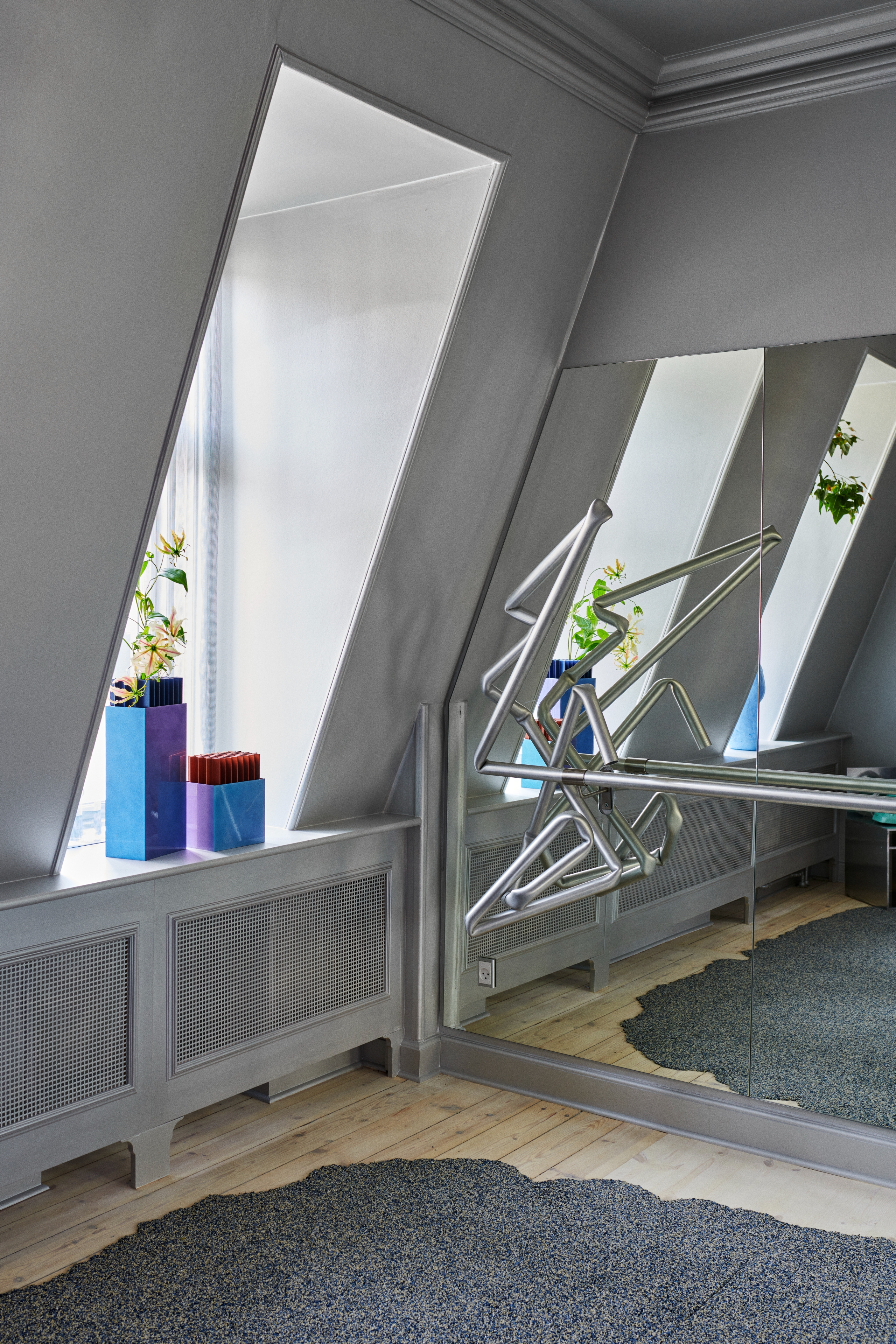
‘Aurora’ vase by Tableau, ‘Stretching bar’ by Among Other Things, ‘Rubber rug one blend 2021’ by Carsten In Der Elst
INFORMATION
postservice.studio
tableau-cph.com
ADDRESS
Jens Kofods Gade 1
1268 Copenhagen
Rosa Bertoli was born in Udine, Italy, and now lives in London. Since 2014, she has been the Design Editor of Wallpaper*, where she oversees design content for the print and online editions, as well as special editorial projects. Through her role at Wallpaper*, she has written extensively about all areas of design. Rosa has been speaker and moderator for various design talks and conferences including London Craft Week, Maison & Objet, The Italian Cultural Institute (London), Clippings, Zaha Hadid Design, Kartell and Frieze Art Fair. Rosa has been on judging panels for the Chart Architecture Award, the Dutch Design Awards and the DesignGuild Marks. She has written for numerous English and Italian language publications, and worked as a content and communication consultant for fashion and design brands.
-
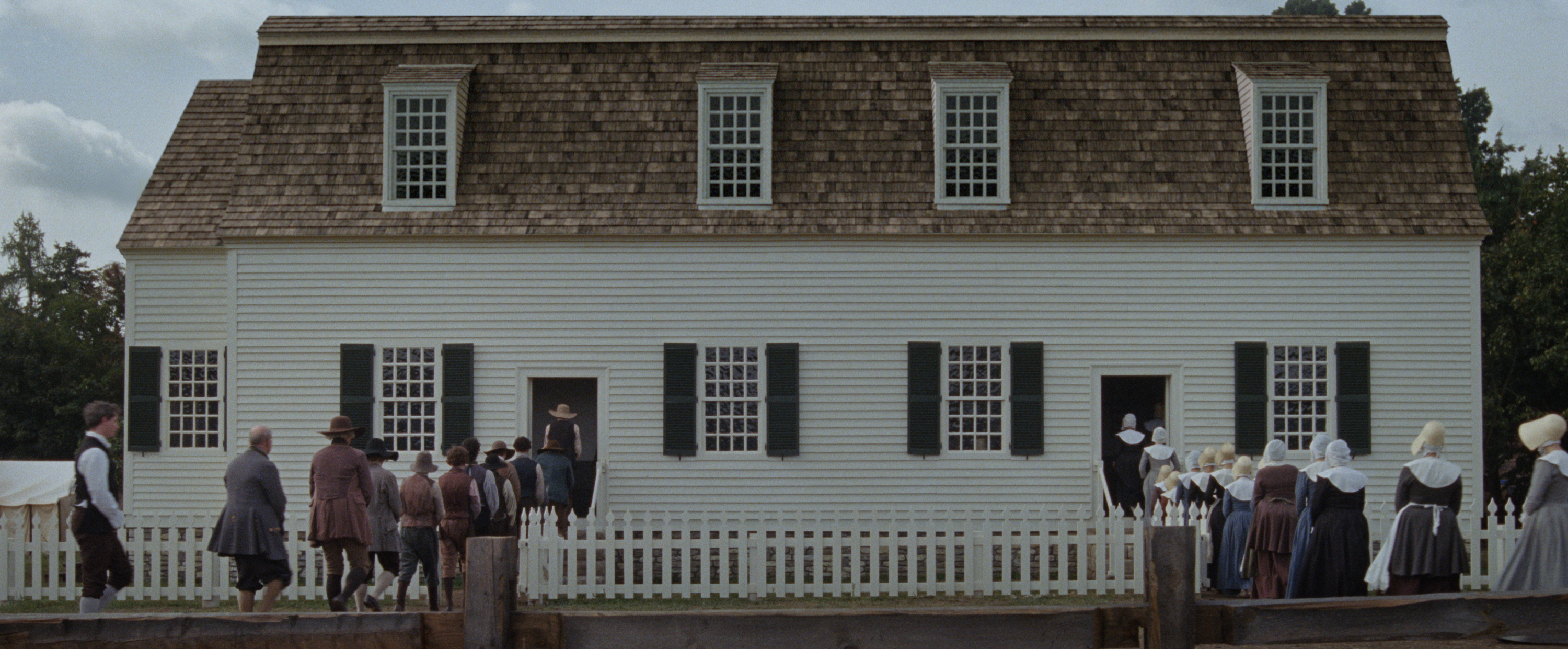 The Testament of Ann Lee brings the Shaker aesthetic to the big screen
The Testament of Ann Lee brings the Shaker aesthetic to the big screenDirected by Mona Fastvold and featuring Amanda Seyfried, The Testament of Ann Lee is a visual deep dive into Shaker culture
-
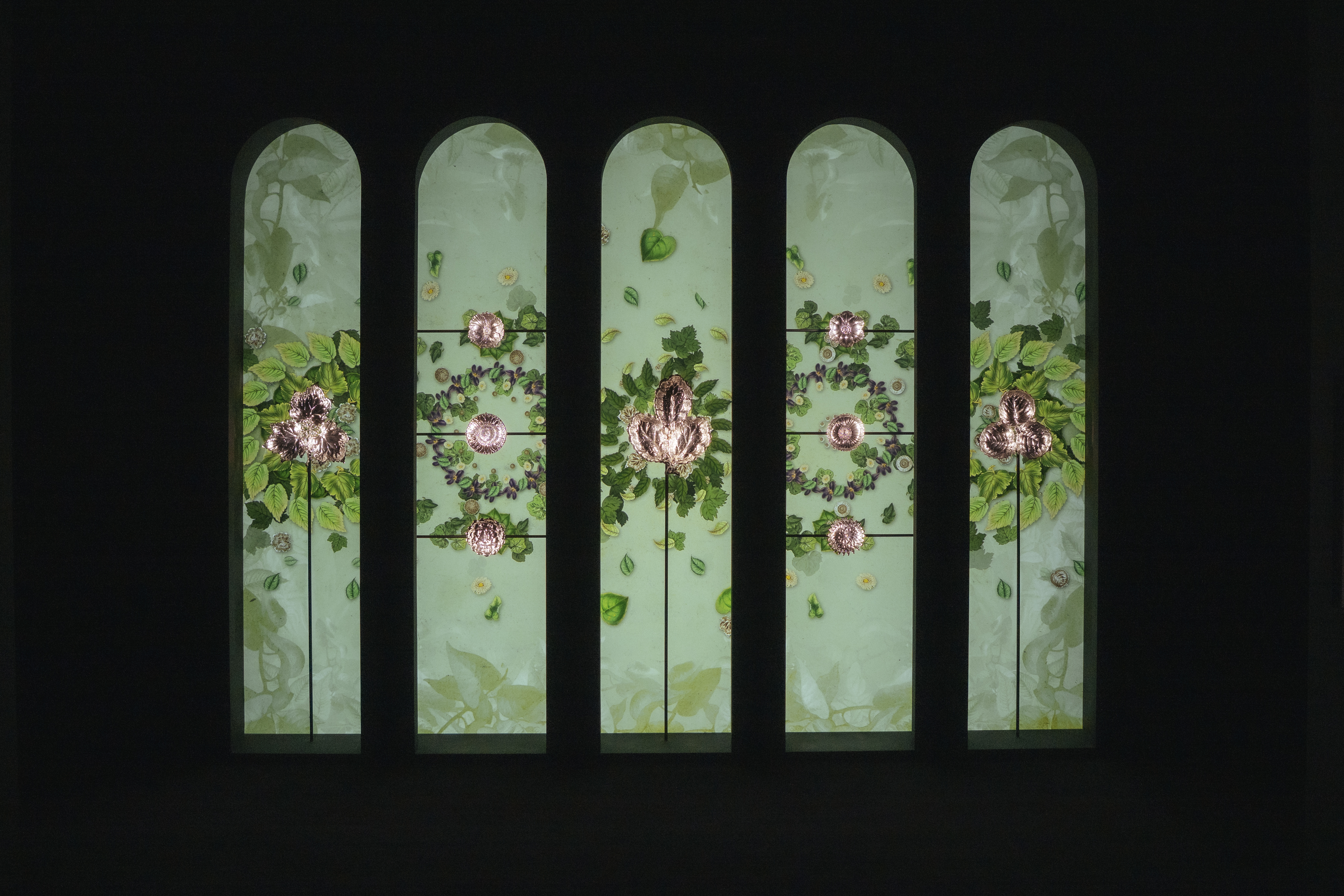 Dive into Buccellati's rich artistic heritage in Shanghai
Dive into Buccellati's rich artistic heritage in Shanghai'The Prince of Goldsmiths: Buccellati Rediscovering the Classics' exhibition takes visitors on an immersive journey through a fascinating history
-
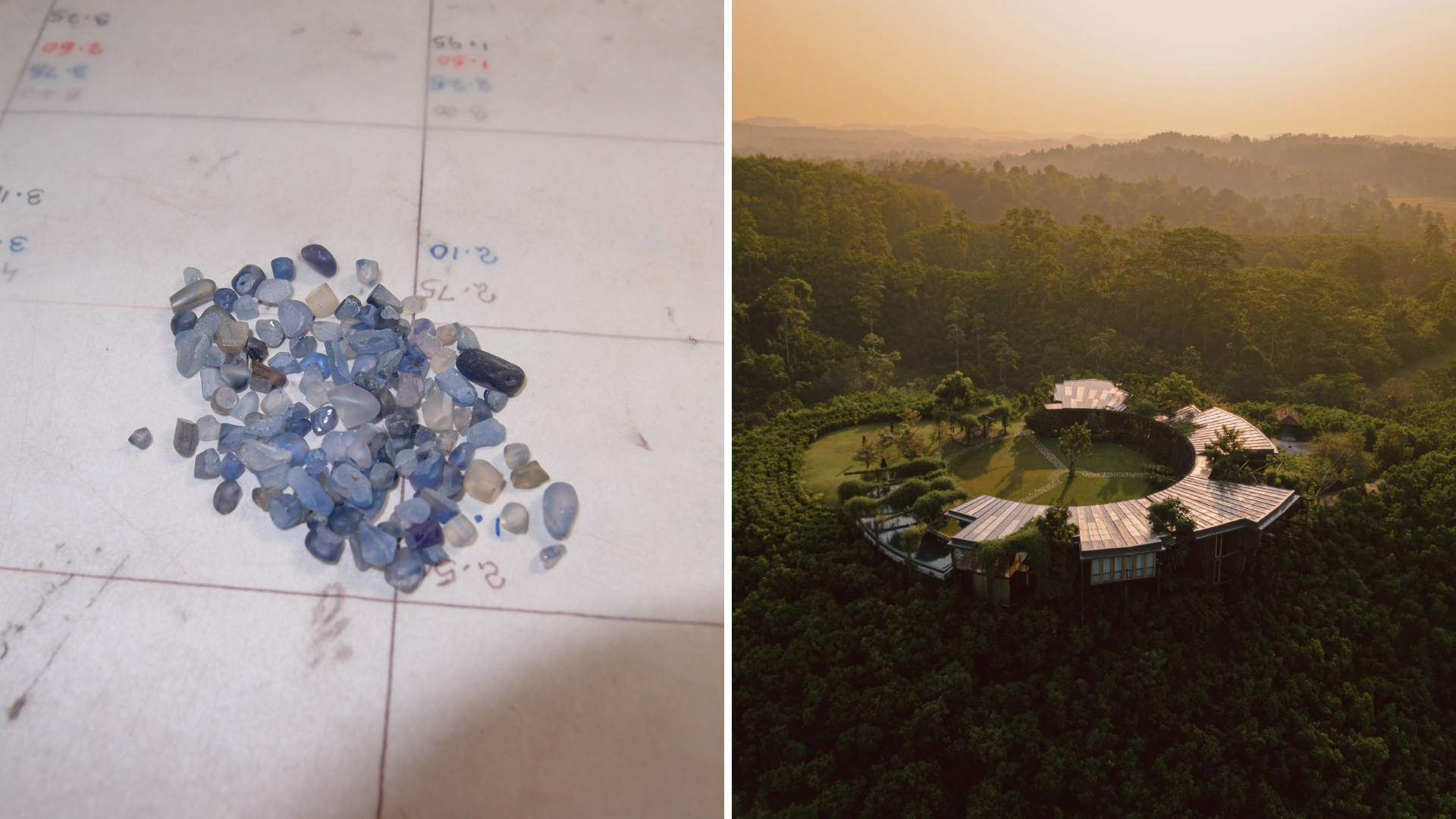 Love jewellery? Now you can book a holiday to source rare gemstones
Love jewellery? Now you can book a holiday to source rare gemstonesHardy & Diamond, Gemstone Journeys debuts in Sri Lanka in April 2026, granting travellers access to the island’s artisanal gemstone mines, as well as the opportunity to source their perfect stone